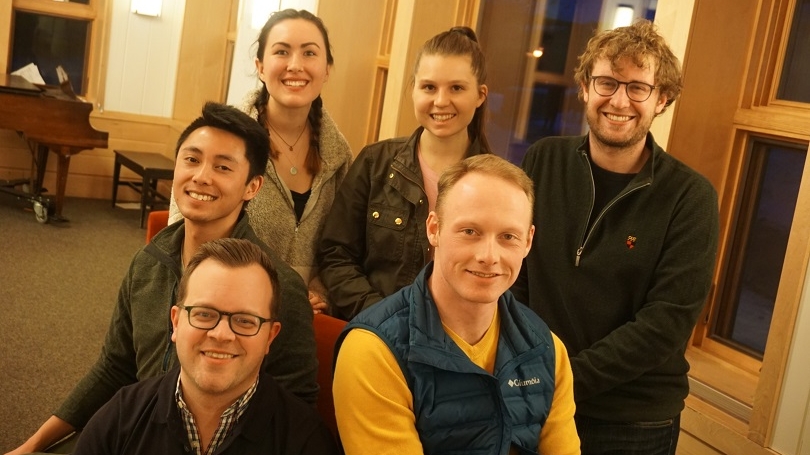
- Public Policy
- Leadership
- Funding
- News & Events
- About the Center
Back to Top Nav
Back to Top Nav
Back to Top Nav
Back to Top Nav
Each winter term for six consecutive Monday evenings, over 100 first-year students, along with about two dozen student facilitators, gather to discuss their values and how those impact their potential goals for the future at and beyond Dartmouth. These students are bonded together by the Dartmouth Leadership Attitudes and Behaviors (D-LAB) program, a student-facilitated leadership development program specifically designed for first-year students, sponsored by the Rockefeller Center and the Office of Student Life.
Over the course of six weekly sessions, students meet in small groups and have the opportunity to bond with peers from across campus and connect with their upper-class facilitators through reflective and interactive activities. The conversations that take place broaden students’ understanding of themselves, their fellow classmates, and the Dartmouth experience itself.
Unique among leadership programs offered at Dartmouth, this program focuses on building a strong dynamic between the upperclassmen facilitators and the first-year participants. Rachel Kesler ’19 served as a D-LAB facilitator her junior year, and her experience inspired her to work as a student program assistant this year. When asked why she decided to take a more involved role, Kesler stated that based on her experience as directorate for the DOC First-Year Trips program she recognized how hard it can be to facilitate conversations with upper- and underclassmen. She found that “being able to have real and interesting and meaningful conversations with freshmen was something important and unique.”
She also praised D-LAB’s ability to create a strong community among the first-years themselves. First-year students are placed in groups of five to 10, giving students the opportunity to meet people in their class, facilitate friendships and branch out from their social sphere. Kesler attributed the small group sizes to not only creating an inclusive and welcoming environment, but also making it tangible and achievable for each of the group members to get to know each other on a deeper level. With their peers, first-years have the opportunity to think not only about what they value individually, but also what the Dartmouth community values.
Kesler recognized the fourth week's session, titled "Leadership for Others" as being particularly significant for the program and the participants. Students reflect on their personal values, but also take it a step further, asking themselves whether the Dartmouth community reflects their values, and if it doesn’t, how can they negotiate that? They also consider questions such as how do 4,500 undergraduates come together to create this community and these values, and what can a single person in this community do to change them? Kesler notes that many students come out of this session feeling empowered, and if they instead feel overwhelmed, it’s the facilitator’s role to empower them.
Kesler recalled a conversation where one of the participants asked her, “I’m just a freshman, what can I do?” and Kesler’s response was “A lot!” Reminding the student that they had four years ahead of them to make a difference, whereas Kesler herself only had four months remaining before graduation.
When asked if she had any words of advice to the incoming Class of 2023, Kesler responded, “Something I wish I knew my freshman year is that everything takes time. Everybody is on a different timeline than you. Whether that's getting used to classes, finding your friends, or finding your community on campus, all of it does take time.”
If a first-year is looking for community, D-LAB is a great place to start.
Written by Anneliese Thomas '19, Rockefeller Center Student Program Assistant for Communications